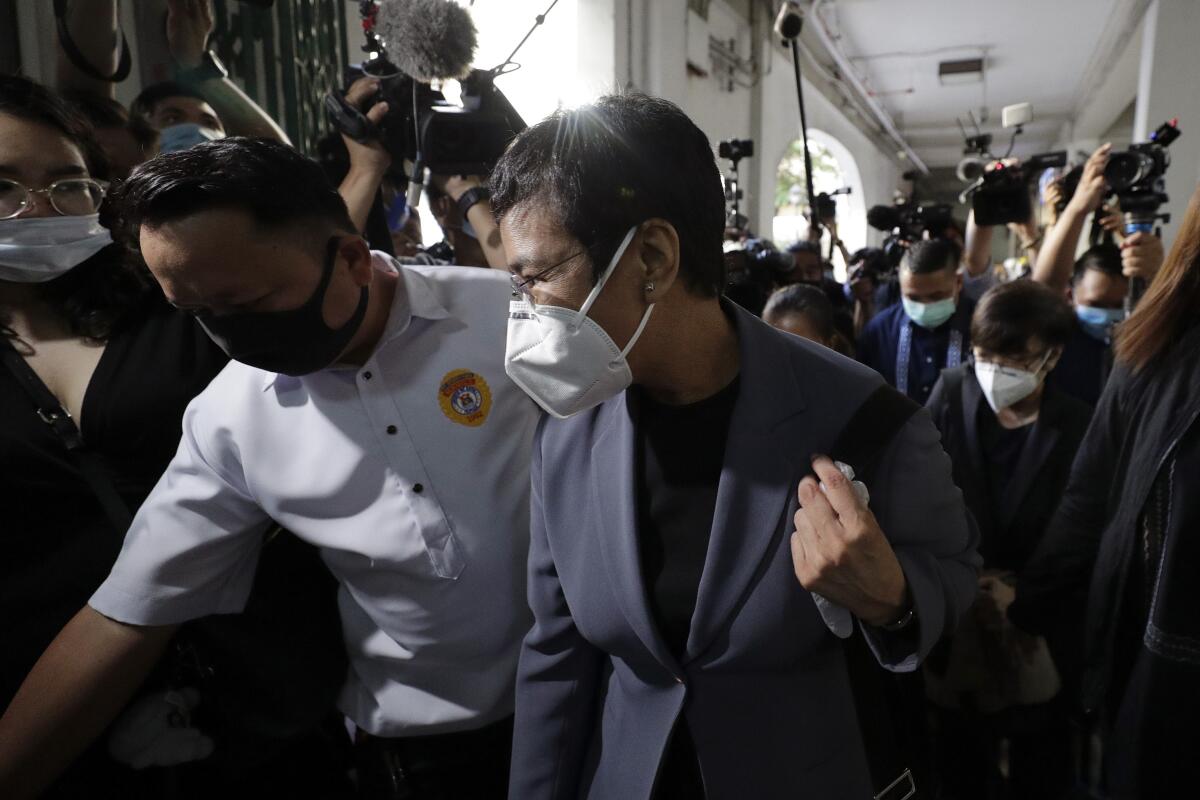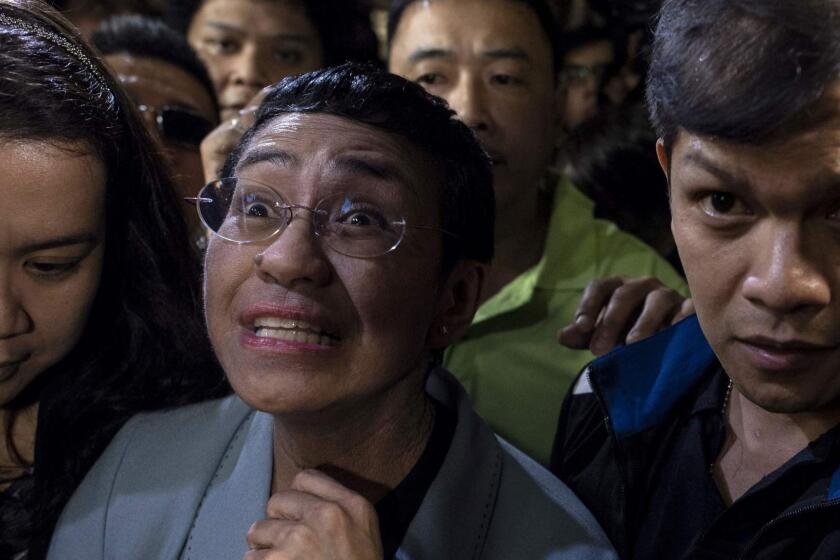Philippine American journalist Maria Ressa convicted in cybercrime case

SINGAPORE — A trial court in Manila has convicted Philippine American journalist Maria Ressa of libel, dealing a severe blow to press freedom in the Philippines under its strongman president, Rodrigo Duterte.
Ressa, 56, and another journalist, Reynaldo Santos, were found guilty Monday under a cybercrime law that carries up to six years in prison. They will remain free while appealing the verdict, according to Rappler, the online news organization that Ressa leads.
Ressa and Santos were expected to be released after posting bail, Rappler reported.
Free speech advocates assailed the ruling, which they said was intended to cripple one of the few independent news outlets in the Philippines, where the government has used intimidation and legal threats to silence critical voices.
“It’s a blow to us, but it’s also not unexpected considering that we are going to stand up against any kind of attacks against press freedom,” Ressa told reporters afterward, wearing a mask to guard against the spread of COVID-19.
“I appeal to you, the journalists in this room, the Filipinos who are listening, to protect your rights. We are meant to be a cautionary tale. We are meant to make you afraid.”
The verdict marked the first time Ressa has been convicted in numerous cases brought against her for tax evasion and other alleged offenses that she has described as attempts to punish Rappler for in-depth reporting on Duterte.
“The verdict against Maria Ressa highlights the ability of the Philippines’ abusive leader to manipulate the laws to go after critical, well-respected media voices whatever the ultimate cost to the country,” said Phil Robertson, deputy Asia director at Human Rights Watch.
“The Rappler case will reverberate not just in the Philippines, but in many countries that long considered the country a robust environment for media freedom.”
A day after posting bail, a defiant Maria Ressa sat in a car winding its way through Manila’s notoriously congested traffic to attend a rally in support of press freedom.
Duterte, a tough-talking populist, has led a bloody drug war in which thousands have been killed, enforced one of the most draconian economic shutdowns due to the coronavirus and last month ordered ABS-CBN, the country’s largest broadcaster, off the air.
Journalists — whom Duterte has dismissed as “spies” and threatened with “assassination” for wrongdoing — have come under increasing attack under his administration.
The nonprofit Committee to Protect Journalists found that the Philippines had the most unsolved murders of journalists, with the killers of 41 reporters over the past decade yet to be held accountable.
Duterte’s spokesman, Harry Roque, told a news briefing that the court ruling “should be respected” and denied that the government had curtailed press freedoms.
The case against Ressa focused on a Rappler investigative article authored by Santos, a former senior researcher at the news site, that reported that a businessman, Wilfredo Keng, who was suspected of involvement in drug smuggling and other crimes, had lent an SUV to the then-chief justice of the Philippine Supreme Court.
Keng sued Rappler, Ressa and Santos for libel. The trial court judge on Monday ruled that Rappler as a company was not guilty.
The article was published four months before the cybercrime law was enacted, meaning the case shouldn’t have been subject to the provisions, according to Ressa’s lawyers.
But the trial court judge sided with prosecutors who argued that the article was republished online in 2014, to correct typographical errors, and therefore came under the scope of the law. That expansive reading of the law could stifle online speech, according to press freedom groups.
“This verdict is a sham and should be quashed,” said Nicholas Bequelin, regional director for Amnesty International. “Ressa, Santos and the Rappler team are being singled out for their critical reporting of the Duterte administration, including ongoing human rights violations in the Philippines. The accusations against them are political, the prosecution was politically motivated, and the sentence is nothing but political.”
More to Read
Sign up for Essential California
The most important California stories and recommendations in your inbox every morning.
You may occasionally receive promotional content from the Los Angeles Times.












